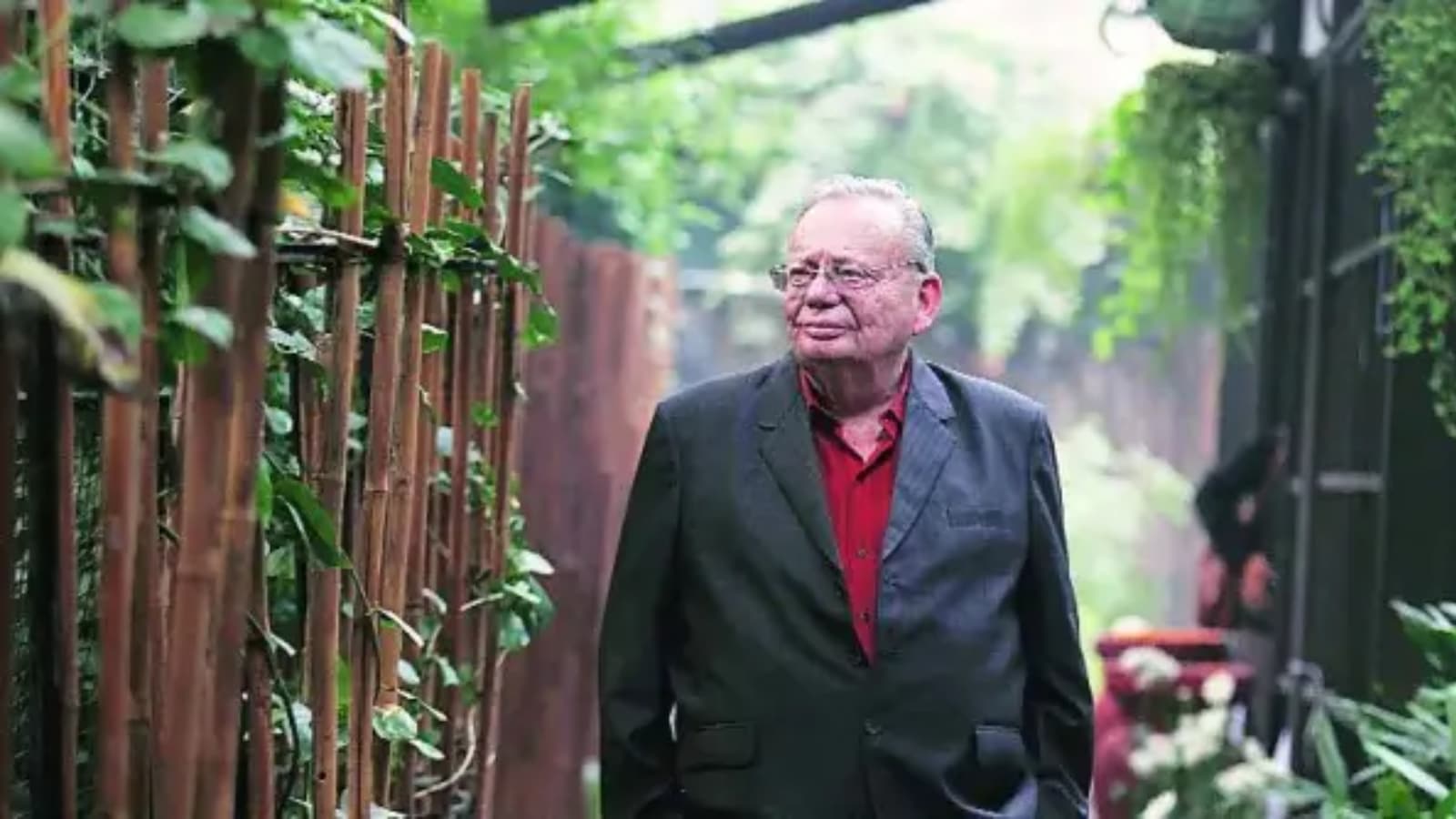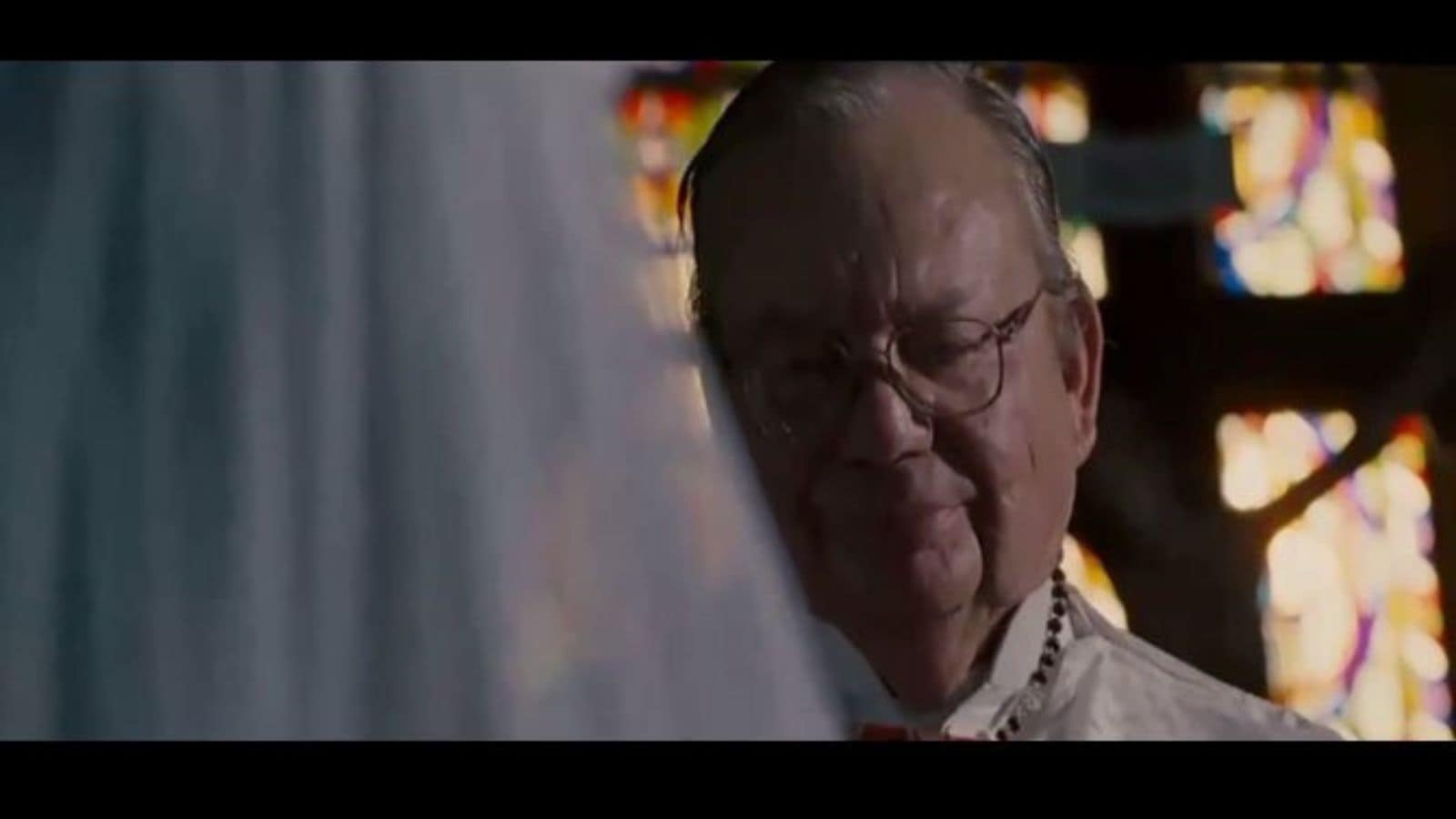Few writers have captured the quiet rhythms of Indian life as evocatively as Ruskin Bond. Over a remarkable career spanning more than seven decades, Bond has chronicled the beauty of the ordinary—mountain walks, monsoon rains, childhood mischief—with a warmth that has endeared him to generations of readers.
A recipient of the Sahitya Akademi Award, the Padma Shri (1999), and the Padma Bhushan (2014), Bond’s literary legacy includes beloved titles like The Room on the Roof, The Blue Umbrella, Rusty, Boy from the Hills, and A Flight of Pigeons.
His work has not only lived on bookshelves but also found new life on screen, with adaptations such as Saat Khoon Maaf and The Blue Umbrella, introducing his stories to wider audiences.
“The body, like an old car, starts giving trouble. But I’m grateful. When I was young, living to 60 was considered an achievement. So 91 feels like a bonus round,” Bond told indianexpress.com in an exclusive, candid conversation. He also shared glimpses into his daily life at 91, musings on modern life, enduring love for books, and more. Edited excerpts are below:
Q. What does a typical day in your life look like? What small joys are you unapologetically ‘greedy’ about?
 “Nature is my daily joy—trees, birds, flowers,” says Bond. (Express Photo)
“Nature is my daily joy—trees, birds, flowers,” says Bond. (Express Photo)
Ruskin Bond: In my younger days, I walked everywhere—hiking through hills and exploring towns. That’s how stories came to me, how life stayed interesting. Now, things are quieter.
I begin my day early—around seven or eight—and write a couple of pages. If the weather is kind, I sit in the sun; otherwise, I find some shade. Nature is my daily joy—trees, birds, flowers.
Story continues below this ad
I get along with small animals, not the large ones. I have a pretty three-legged Persian cat and a gang of monkeys who aren’t pets, but like to steal my lunch.
Books are still a constant—I read every day, though I must bring them close to my nose now. I take four newspapers each morning and get quite grumpy if they’re late.
And yes, I love sweets—ice cream, laddus, jalebis, and burfi. The doctors ask to cut back on sugar, but I sneak in the occasional treat. Life would be rather dull without those little indulgences.
Q. At this stage in life, how do you define “fitness”? What keeps you feeling well in body, mind, and spirit?
Story continues below this ad
Ruskin Bond: I’ve never thought much about fitness, to be honest. When we’re young, we take it for granted. I used to walk and cycle everywhere, and that probably kept me healthy. I never did yoga or followed any strict regimen.
I’ve always been more of a lazy fellow—I get up to write, not to do exercises. Now, in my 90s, I can’t walk far, but I still enjoy a short stroll. The body, like an old car, starts giving trouble. But I’m grateful. When I was young, living to 60 was considered an achievement. So 91 feels like a bonus round.
Q. Having witnessed so much change over the decades, is there something from the past you wish today’s generation would reconsider?
Ruskin Bond: When I was a boy, I loved walking and cycling. But now, it doesn’t feel safe anymore. I used to walk all over the city when I lived in Delhi, even from Connaught Place to the Red Fort.
The traffic now makes walking difficult, both here in Mussoorie and in Delhi. It’s just the blare of car horns. You get used to it eventually, but I’d much rather hear birds, but unfortunately, the traffic and helicopters have scared them away.
Story continues below this ad
You learn to live with it. Otherwise, I’d have to move to the next mountain and hope they don’t follow me there.
Life changes, but thankfully, some things remain: books to read and friends to talk to. And now and then, when one of the young people in the house takes me for a drive outside Mussoorie, I can go for a short walk, hear a few birds, and enjoy a bit of peace.
But right next to the house, it’s hard. Town life is slowly consuming the countryside, and it seems that’s just the way it is.
Q. Technology has changed how we tell stories, from podcasts to audiobooks. Do you feel something essential has been lost, or is it simply an evolution?
Story continues below this ad
Ruskin Bond: It’s an evolution, I suppose. As long as people still care about stories, I’m happy. Whether it’s a printed book or someone narrating it on a podcast, the gist of the story remains. It’s how we share our humanity.
Q. Travel adventures are often centred in your stories. Of all the places you’ve lived or travelled to, is there one that holds a special place in your heart?
 Ruskin Bond made a special appearance in the 2011 Bollywood film Saat Khoon Maaf, which was based on his short story Susanna’s Seven Husbands. (Screenshot)
Ruskin Bond made a special appearance in the 2011 Bollywood film Saat Khoon Maaf, which was based on his short story Susanna’s Seven Husbands. (Screenshot)
Ruskin Bond: Apart from Mussoorie, which is home, I have fond memories of Jamnagar, where I lived as a boy, by the sea. Pondicherry was lovely too, during the filming of Saat Khoon Maaf. And I once spent time in Gopalpur-on-Sea in Odisha—stormy, yes, but beautiful and quiet. I like seaside places—they contrast with the mountains. India offers such variety: hills, beaches, deserts. You could spend your whole life here and never run out of new experiences.
Q. Your new book, How to Be You, feels like a quiet manifesto on living authentically. Was self-assurance always a part of your nature?
Story continues below this ad
Ruskin Bond: (Laughs) Well, I’m still trying to be me. That’s the honest answer. I hope the book helps a few young people. I think self-assurance comes over time—with experience, with solitude, and with acceptance. You stop trying to impress and start enjoying being who you are.
Q. Is there a hidden talent or hobby your readers might be surprised to know about?
Ruskin Bond: I’m not sure I have any hidden talents. Writing has always been both my profession and my passion. Beyond that, I do have a quirky little knack for tongue twisters—a skill I’ve picked up over the years. I can breeze through some of the trickiest ones, like “Peter Piper picked a peck of pickled peppers” or “She sells sea shells by the seashore,” without skipping a beat. Not too bad for someone in his 90s, I’d say. I suppose it’s the writer in me, still delighting in the rhythm and mischief of words.
Q. Lastly, you’ve reached a remarkable milestone of 91 years. What is one valuable life lesson you’ve learnt?
Ruskin Bond: Life is a precious gift—make the most of it. Do something meaningful with your time, and give something of yourself to others. Use it meaningfully: create, contribute, and leave something behind. As the Latin proverb says, “Ars longa, vita brevis” — art is long, life is short.

